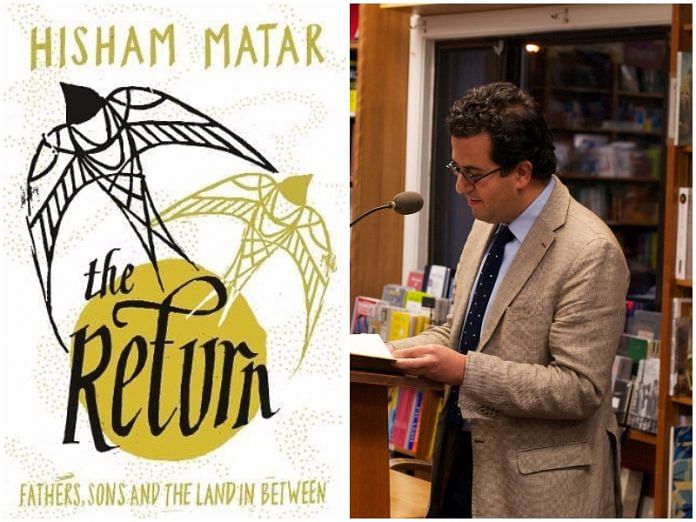The Return by Hisham Matar recounts the author’s search for his father, his homeland, and thereby his identity under Gaddafi’s rule in Libya.
Hisham Matar rose to literary prominence with his novel Anatomy of a Disappearance that captured the complex relationship between a father and his son. The same trope was found in his earlier novel In The Country of Men. Both works are fictional and the narrative is so well constructed that the temptation to finish them in one sitting is overwhelming.
The Return, is the final culmination of Matar’s search for his father that has dominated his fictional overtures. It is the memoir that records the existential crisis that followed the author’s exile from his motherland and the identity crisis that followed the disappearance of his father. A prisoner of exile, he is unable to visit Libya where his father is imprisoned.
The narrative shifts from retellings of his childhood to recounting tales from his grandfather’s time. The prosecution of dissenters in Libya is as vividly depicted as the Execution of Maximillian (a painting by Manet).
Jaballa Matar’s (father) imprisonment and subsequent disappearance is a foreshadowing of the limbo that Hisham Matar finds himself in. A British national, he condemns the nation’s approach to the Gaddafi regime. He doesn’t identify as British and neither can he relate to Libya.
The book is reclamation of a past that is both personal and political. It chronicles 42 years of dictatorship under Muammar Gaddafi, a leader who rose to prominence after the overthrow of King Idris. The crimes that were perpetrated under the Gaddafi regime were never officially recorded till the revolution of 2011 when he was displaced and killed by the National Transitional Council. By then most of the data was lost.
Matar makes a calculated attempt to restore and record such events in the book by providing, at times in horrific detail, the events that transpired. The accounts of the prisoners at Abu Salim (the most feared and secretive prison in Libya at the time) and the massacre of the prisoners in 1996 along with the conversations with the British government are documented in the book.
The fear of forgetting and being forgotten is a central concern for Hisham Matar. The book is littered with literary to references to sons who lost their father (Hamlet and Edgar, King Lear). The sense of loss and uncertainty is magnified for Matar for there is no conclusive evidence of what happened to Jaballa Matar, only assumptions. He is unable conceptualize his identity for the two repositories of his history, his homeland and his father, are both inaccessible to him. He assumes that his father is dead but never gives up on his attempt to find out what exactly happened to him.
There is a sense of incompleteness that Matar cannot escape, captured very beautifully captured by the lines from Odysseus he quotes towards the end,
“I wish atleast I had some happy man
As father, growing old in his own house and a –
But unknown death and silence are the fate
Of him…”
He is waiting, much like Vladmir and Estragon, for Godot, for a miracle to bring him final and conclusive evidence of his father’s life and death. He needs to know. The Return is the melancholic dirge by a son to a father whose fate till date remains unknown.



